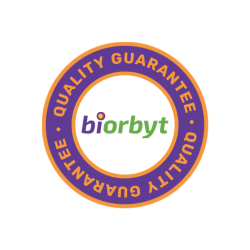You have no items in your shopping cart.
KRT1 Antibody (Center)
Catalog Number: orb1927782
| Catalog Number | orb1927782 |
|---|---|
| Category | Antibodies |
| Description | Purified Rabbit Polyclonal Antibody (Pab) |
| Species/Host | Rabbit |
| Clonality | Polyclonal |
| Clone Number | RB18411 |
| Tested applications | FC, IHC-P, WB |
| Reactivity | Human |
| Isotype | Rabbit IgG |
| Antibody Type | Primary Antibody |
| Dilution range | WB: 1:1000, WB: 1:1000, IHC-P: 1:50~100, FC: 1:10~50 |
| Form/Appearance | Purified polyclonal antibody supplied in PBS with 0.09% (W/V) sodium azide. This antibody is prepared by Saturated Ammonium Sulfate (SAS) precipitation followed by dialysis against PBS. |
| Conjugation | Unconjugated |
| MW | 66039 Da |
| Target | This KRT1 antibody is generated from rabbits immunized with a KLH conjugated synthetic peptide between 415-443 amino acids from the Central region of human KRT1. |
| UniProt ID | P04264 |
| NCBI | NP_006112.3 |
| Storage | Maintain refrigerated at 2-8°C for up to 2 weeks. For long term storage store at -20°C in small aliquots to prevent freeze-thaw cycles |
| Alternative names | Keratin, type II cytoskeletal 1, 67 kDa cytokerati Read more... |
| Note | For research use only |
| Expiration Date | 12 months from date of receipt. |

Western blot analysis of KRT1 Antibody (Center) in MCF-7 cell line lysates (35 ug/lane). KRT1 (arrow) was detected using the purified Pab.

KRT1 Antibody (Center) flow cytometric analysis of MCF-7 cells (bottom histogram) compared to a negative control cell (top histogram). FITC-conjugated goat-anti-rabbit secondary antibodies were used for the analysis.

All lanes: Anti-KRT1 Antibody (Center) at 1:1000 dilution + 293 whole cell lysate. Lysates/proteins at 20 µg per lane. Secondary Goat Anti-Rabbit IgG, (H+L), Peroxidase conjugated at 1/15000 dilution.Observed band size: 66KDa. Blocking/Dilution buffer: 5% NFDM/TBST.

KRT1 Antibody (Center) IHC analysis in formalin fixed and paraffin embedded skin tissue followed by peroxidase conjugation of the secondary antibody and DAB staining. This data demonstrates the use of the KRT1 Antibody (Center) for immunohistochemistry. Clinical relevance has not been evaluated.



